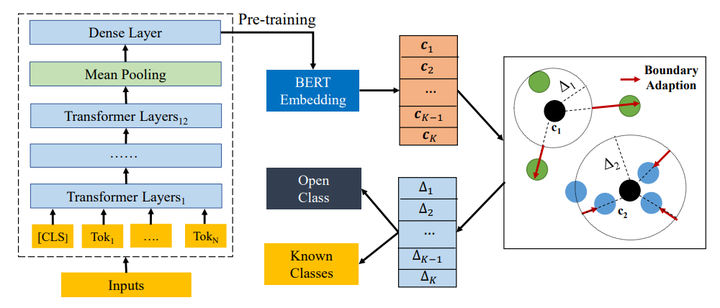
摘要
Open intent classification is a challenging task in dialogue systems. On the one hand, we should ensure the classification quality of known intents. On the other hand, we need to identify the open (unknown) intent during testing. Current models are limited in finding the appropriate decision boundary to balance the performances of both known and open intents. In this paper, we propose a post-processing method to learn the adaptive decision boundary (ADB) for open intent classification. We first utilize the labeled known intent samples to pre-train the model. Then, we use the well-trained features to automatically learn the adaptive spherical decision boundaries for each known intent. Specifically, we propose a new loss function to balance both the empirical risk and the open space risk. Our method does not need open samples and is free from modifying the model architecture. We find our approach is surprisingly insensitive with less labeled data and fewer known intents. Extensive experiments on three benchmark datasets show that our method yields significant improvements compared with the state-of-the-art methods.